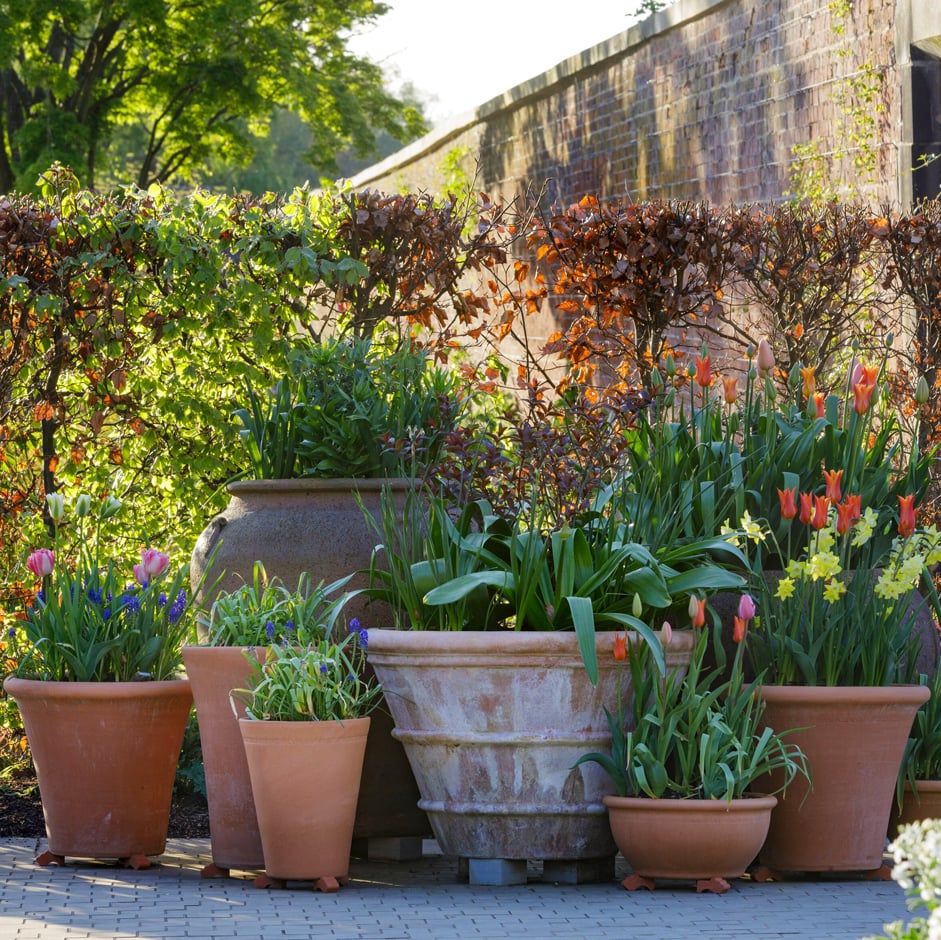
Introducing...
Autumn and winter-flowering camellias
Slightly less hardy than spring-flowering camellias, you can grow these shrubs in sheltered gardens or containers placed in an unheated greenhouse or conservatory over winter. Some are suitable for training up a wall. They are sometimes known as ‘sasanquas’.
Looks
These camellias have single, semi-double or peony- or anemone-form flowers with soft petals. A few varieties have scented flowers. Some forms are compact and slow growing.
Likes
These camellias need a sunny site, sheltered from wind and cold in winter (such as near a house wall or fence). Acidic soil is essential. In containers, use an ericaceous (acidic) compost.
Dislikes
Plants will fail to thrive when grown on alkaline soils and are unlikely to flower well in full shade.
Did you know?
Once rarely seen in gardens, these plants (mainly forms of Camellia sasanqua) have been bred with hardier types to create a range for general garden use.
Growing guide

How to grow camellias
All the information you need to grow and care for camellias in your garden.
Autumn & winter-flowering camellias we recommend
Camellia sasanqua 'Hugh Evans'
camellia 'Hugh Evans'
- 2.5–4 metres
- 1.5–2.5 metres
Camellia × vernalis 'Yuletide'
camellia 'Yuletide'
- 2.5–4 metres
- 1.5–2.5 metres
Camellia transnokoensis
Mount Noko camellia
- 2.5–4 metres
- 2.5–4 metres
Camellia sasanqua 'Hugh Evans'
camellia 'Hugh Evans'
- 2.5–4 metres
- 1.5–2.5 metres
Camellia × vernalis 'Yuletide'
camellia 'Yuletide'
- 2.5–4 metres
- 1.5–2.5 metres
Camellia transnokoensis
Mount Noko camellia
- 2.5–4 metres
- 2.5–4 metres
Useful advice

Growing plants in containers

Preventing winter damage
Get involved
The Royal Horticultural Society is the UK’s leading gardening charity. We aim to enrich everyone’s life through plants, and make the UK a greener and more beautiful place.